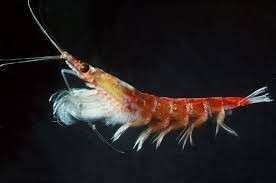Stopping unfair competition from unlawful ingredients and products at the border

Companies that play by the rules are harmed when unlawful products compete with their own. Unlawful products can drive prices down, lowering profits. They can cause lost sales. And if, because of this illicit product, there is market confusion, damage to reputation may follow, eroding brand loyalty and goodwill.
The problem is obvious, but effective solutions can seem elusive. Using federal or state courts may require multiple individual actions in various jurisdictions if the competitors are numerous. And the relief available from district courts—injunctions and damages—can be difficult to enforce or collect. The difficulties mount where the competitor or its supplier reside abroad.
A simpler, faster, and more powerful solution may lie in a U.S. trade law known as Section 337. Under that law, imported illicit ingredients or products containing them can be blocked from entry into the United States if they unfairly compete with a company that has domestic operations. The law is administered by the U.S. International Trade Commission (ITC), an agency established to provide a fast, efficient forum for stopping unfair imports. Its reach extends even to products made domestically using the imported product. And, importantly, an ITC action has none of the hassles of district court litigation since jurisdiction is based on the imported product, and not a party’s contacts with the United States.
Given the prevalence of foreign-sourced bulk ingredients, many instances of unfair competition may be candidates for ITC investigations.
How Unfair Competition is halted by the ITC’s unique remedies
Section 337 broadly prohibits “unfair methods of competition and unfair acts in the importation of articles … into the United States.” When the ITC determines a violation of Section 337, it can issue two types of relief: exclusion orders that block imports at the border, and cease and desist orders the prevent sales of domestic inventories. (The ITC does not award money damages.)
Exclusion orders come in two forms. A limited exclusion order (LEO) bars the named party (and its agents) from importing any articles that violate Section 337. A general exclusion order (GEO), on the other hand, bars anyone from importing articles at issue into the United States. Note that GEOs are granted only in circumstances where it has been shown that circumvention of a limited exclusion order is likely without a GEO.
Exclusion orders are administered by U.S. Customs & Border Protection at the ports and for as long as the exclusion orders remain in effect. Goods subject to an exclusion order are seized by Customs and not allowed into the United States.
Cease and desist orders (CDOs) prevent parties from continuing to sell or market the illicit products. Violations of a CDO can result in penalties of up to $100,000 per day or twice the value of the goods—whichever is higher—making CDOs a powerful tool to dissuade companies from continuing the unfair competition after the investigation concludes. Unlike exclusion orders, CDOs are administered by the ITC, which can investigate violations on its own or by request.
Proving a Violation of Section 337 to Block Unfair Imports
Proving a violation of Section 337 is fairly straightforward. Complainants alleging unfair acts connected to importations must prove the following:
• importation, sale for importation, or sale after importation of the accused products;
• unfair competition or other unfair acts associated with the imported products;
• a “domestic industry” comprised of certain qualifying domestic investments; and
• injury or threat of injury to the domestic industry caused by the imported products.
When other unfair acts are alleged, such as infringement of patents, trademarks, or copyrights, complainants need not prove injury or threat of injury to the domestic industry. Rather, complainants must show they practice the intellectual property together with certain qualifying investments relating to the intellectual property.
Advantages of the ITC over District Court Actions
Investigations move fast and a final decision usually issues in 15 months or less. Relief against defaulting parties can issue within just a few months. This is a stark contrast from district court litigation, where the time between filing the case and trial can be years.
In addition to speed, the ITC offers several advantages over federal district court to companies grappling with unfair competition from imported products:
• Jurisdiction – in rem jurisdiction makes it possible to initiate an action based on a single actionable item (i.e., one illicit product), no matter whether the manufacturer has contacts with the United States or can even be identified.
• Service of complaint – service is handled by the ITC, via overnight mail, when the investigation is instituted. The Hague Convention does not apply to ITC complaints, unlike in federal district court, where service of the complaint in foreign countries can be a lengthy process fraught with pitfalls.
• Joinder – all parties can and will be joined in a single action, which promotes the efficient resolution of common legal and factual issues. Investigations naming 20 or more respondents are not uncommon, particularly where widespread unfair competition from commoditized products is at issue.
• Broad discovery – parties can make use of 175 interrogatories per respondent, and unlimited requests for production and requests for admission. There can also be up to 20 fact depositions (each corporate deposition notice counts as a single deposition regardless of the number of corporate designees). The ITC also has nationwide subpoena power.
• Efficient justice – administrative law judges each have specialized and detailed ground rules designed to promote efficiency and penalize parties that fail to produce discovery in a timely manner.
• Default – default can be sought soon after a party fails to answer or participate in the investigation, after which an exclusion order will issue. Named parties have 20 days to respond to the complaint, after which the complainant may move for default, yielding relief against the defaulting parties in as little as a few months.
Comment
Companies facing unfair competition from foreign-sourced products should consider adding ITC actions to their arsenals. The ability to join multiple unrelated parties in a single action to efficiently and quickly adjudicate the unfair competition allows companies to tightly control the costs and efforts required to stop unfair completion. The speed of the ITC ensures that results will come quickly, and without the delays often experienced in district courts. To be sure, the ITC is not a one-size-fits-all solution to unfair competition, and conventional lawsuits and non-judicial efforts may, depending on the circumstances, be a valid option. But for the right circumstances, an ITC action may provide companies with a quick and potent method to level the playing field.
About the authors
Venable Intellectual Property partner Andrew Pratt advises clients on intellectual property issues and litigating intellectual property disputes in federal courts and the U.S. International Trade Commission (ITC).Mr. Pratt regularly appears as trial counsel before the ITC and has handled over fifteen Section 337 proceedings and eight trials.
Venable LLP Intellectual Property partner Justin Pierce represents companies in patent litigation, trademarks and brand protection, anti-counterfeiting, copyrights, design rights, trade secrets, licensing, rights of publicity, domain name and social media disputes, and international government affairs work relating to intellectual property matters. Mr. Pierce also has significant experience in the application of intellectual property analytics and the development of intellectual property strategy.










